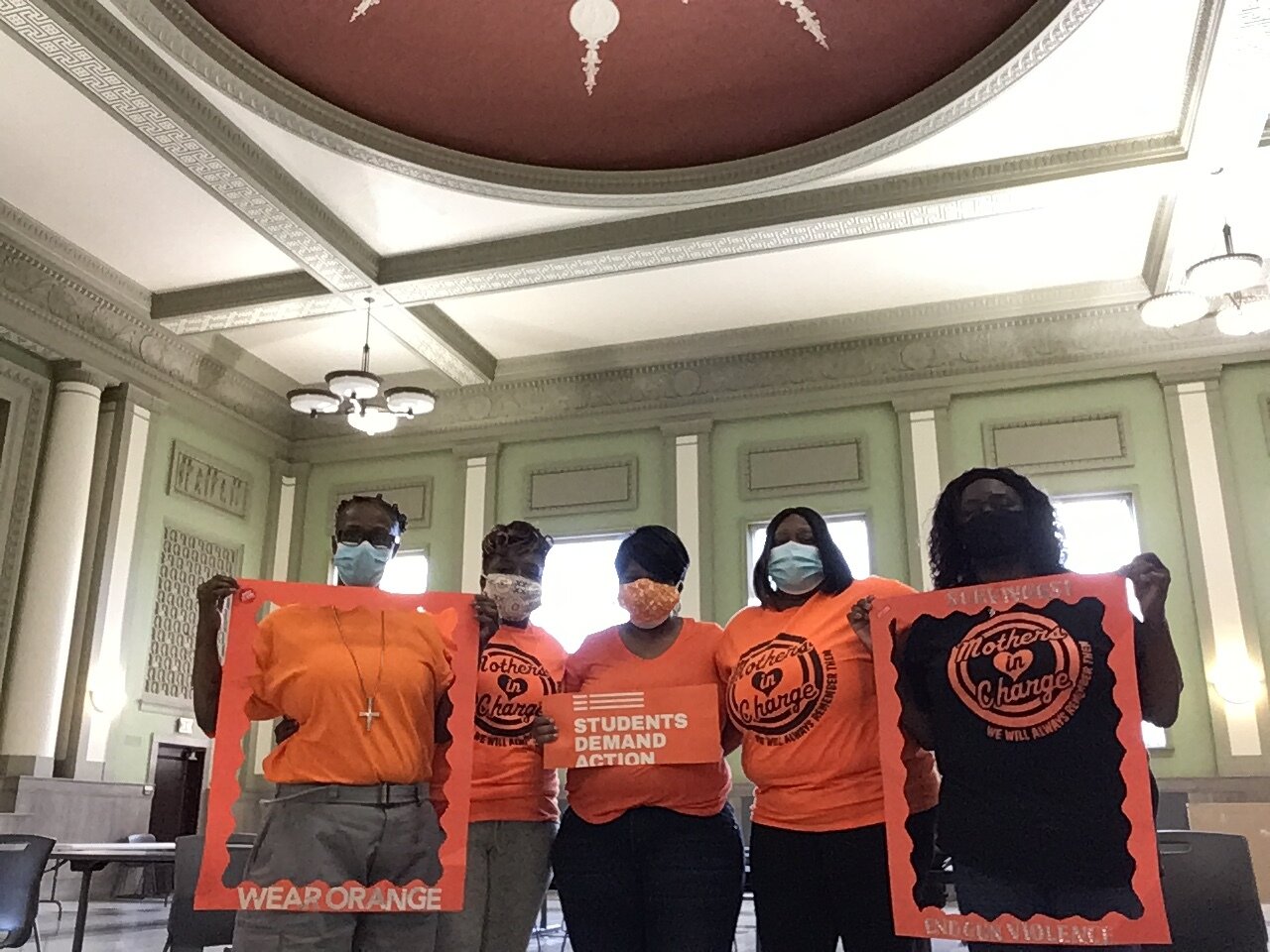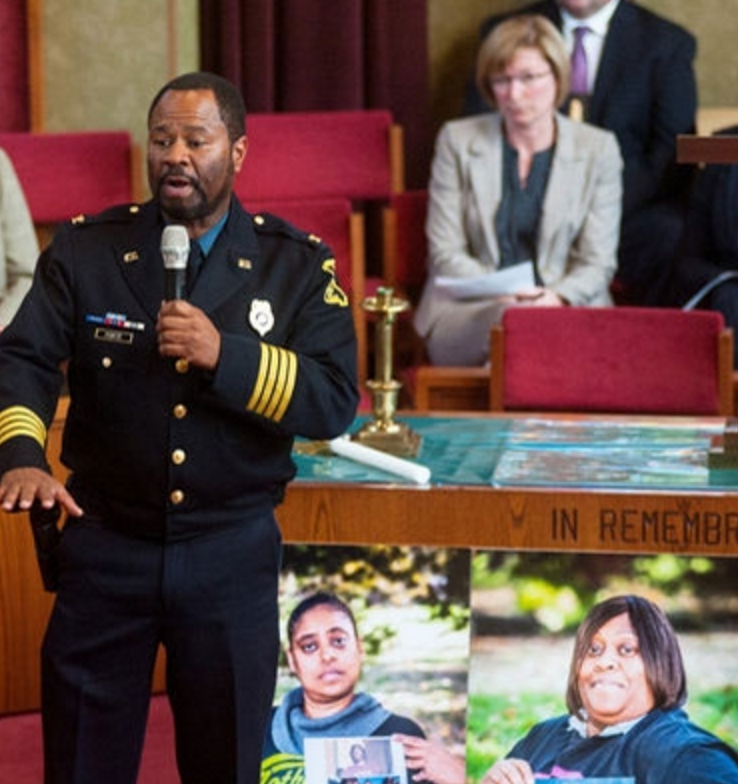By Barb Shelly
KC Mothers in Charge volunteer
While much of Kansas City seemed frozen in place in the early weeks of the COVID-19 shutdown, Rosilyn Temple’s phone kept ringing.
Often the calls came at night. A police sergeant would be on the line, informing Temple that yet another murder had taken place.
For seven years, Temple has responded to these calls by jumping into her car, driving to the scene and providing comfort and information to distraught families and loved ones of homicide victims. Only the virus, and all of the unknowns that came with it, kept her inside.
“I could not go out to get in my community, to be there for the families or the police department,” Temple said. “And that was breaking my heart.”
Temple’s work as executive director of Kansas City Mothers in Charge requires the kind of in-person contact that health experts continue to discourage. She visits hospitals and funeral homes with families of victims. Along with staff and volunteers, she knocks on doors seeking conversations about the sources of violence. With Latrice Murray, outreach specialist and lead core mother for KC Mothers in Charge, she encourages family members at monthly “hope and healing” sessions. And she gives hugs -- lots of hugs.
So, when city leaders issued executive orders for people to stay home, Temple was worried.
“I had a lot of anxiety,” she said. “How were we going to serve families? How would we do our hope and healing support? There were just so many things going through my mind.”
Like others, Temple and KC Mothers in Charge adjusted. “I had never Zoomed,” Temple said, but she figured it out and communicated with her board and staff. She phoned loved ones of homicide victims and asked how she could help them. Sometimes she acted as a liaison between family members and homicide detectives.
Meanwhile, Murray made weekly phone calls to hundreds of people who have lost children, spouses and other loved ones to the region’s ongoing violence.
With stay-at-home orders lifted, Temple says she is now “fully back.” The KC Mothers in Charge office at 3200 Wayne Avenue is back open, and Temple responds to late-night calls by throwing on clothes and driving to scenes. She takes food and essential supplies to the families of victims, and helps them get information from police, the medical examiner and funeral homes.
Some things are different, of course. Temple wears masks wherever she goes. The June hope and healing meeting took place with masks and social distancing and without the usual snacks and embraces.
At the end of May, Temple watched the video of a Minneapolis police officer pressing his knee into George Floyd’s neck even after Floyd went still.
“I was sickened,” she said. “This man was begging for his life and that officer stood there with his hands in his pockets and intentionally killed that man.”
She wasn’t surprised when anger erupted in the streets after Floyd’s killing, Temple said, because she’s been watching it build for years. She hopes there is a way to channel the emotions of recent weeks into better relations among Black citizens and police -- and also to slow down Kansas City’s devastating number of Black on Black homicides.
“What’s been overlooked is there’s been generations of anger, decades of anger, over things that have happened to us as a Black community,” Temple said. “I hope we can move forward and deal with it better. Black lives matter, definitely. But we ourselves have got to make them matter. I’ve seen people pass by a homicide scene -- somebody’s on the ground -- and they’ll say, ‘well it’s not my business.’ Well, it is your business. That is someone’s child. This is your community.”
Temple hopes the COVID-19 scare, which has hit Black neighborhoods in Kansas City harder than others, will have some positive effects. She preaches healthy diets and exercise, and says she worked out on a home treadmill when she was in isolation. The pandemic has taught lessons about personal space and hygiene that could be helpful going forward, she said.
KC Mothers in Charge will try, as it always does, to be a force for good, Temple said. “Our goal is to be able to come together with our community, to build off of this, and to be as positive as we can as we move forward in this work.”
















